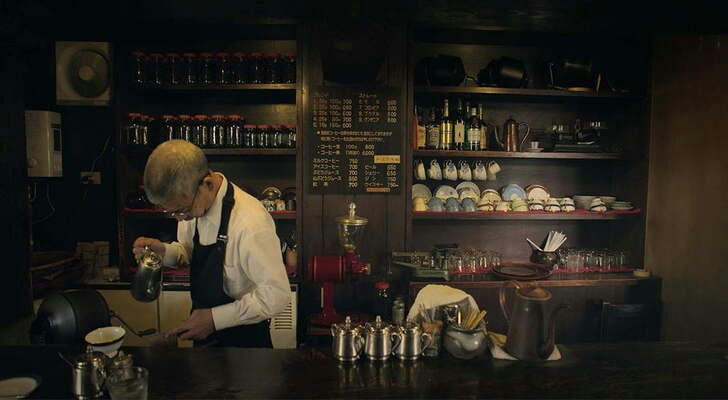Barista Certification: A Journey to Professional Coffee Mastery

Amidst the aroma of coffee, baristas infuse each cup with passion and skill. Barista certification, a testament to their expertise, is the key to unlocking the world of professional coffee artistry. As coffee culture flourishes globally, the significance of barista certification continues to rise.
I. The Necessity of Barista Certification
Barista certification is a crucial indicator of professionalism in the coffee industry. With increasing consumer demands for coffee quality, baristas must possess solid theoretical knowledge and exceptional practical skills. The certification process encompasses various aspects, including coffee bean types, roasting levels, grinding coarseness, and extraction techniques. Through certification, baristas can systematically learn and master this knowledge, better understanding coffee flavors and production principles. For instance, knowledge of different coffee bean origins helps baristas select suitable beans to create coffee that meets customer preferences. Additionally, certification standardizes baristas' operational procedures, ensuring consistent coffee quality. In the fast-paced environment of coffee shops, standardized procedures enhance efficiency and reduce quality fluctuations caused by operational errors, which is vital for brand building and customer satisfaction.
II. Types of Barista Certification
There are numerous barista certification systems worldwide, each with its own characteristics and focuses. The International Coffee Organization (ICO) certification is one of the more authoritative certifications, covering the entire coffee industry chain from planting to production. Baristas with ICO certification gain in-depth knowledge of coffee cultivation and processing, as well as insights into the international coffee market. This is particularly valuable for those interested in international trade or procurement in the coffee industry.
The Specialty Coffee Association of America (SCAA) and the Specialty Coffee Association of Europe (SCAE) certifications are also highly respected. These two certification systems emphasize coffee sensory evaluation and production techniques. For example, the SCAA certification course teaches baristas how to assess coffee flavors through cupping, including acidity, sweetness, and body. The SCAE, on the other hand, stresses the scientific principles of coffee production, such as extraction rate and concentration control. These certification systems provide comprehensive and in-depth training, helping baristas advance in their professional fields.

III. Training Content of Barista Certification
The training content for barista certification is diverse, aiming to enhance baristas' professional competence. In theoretical learning, baristas study coffee history, culture, and related chemistry and physics. Understanding coffee history allows baristas to better grasp the development of coffee culture, enabling them to share interesting stories with customers. Chemistry and physics knowledge helps baristas understand the chemical reactions and physical changes during coffee extraction, such as caffeine dissolution and oil extraction.
Practical skills training is equally important. Baristas must master the operation of coffee machines and grinders, learning to adjust grinding coarseness and extraction parameters based on different coffee beans and customer needs. For example, precise control of grinding coarseness and extraction time is crucial when making espresso. Additionally, latte art skills are an essential part of barista certification training. Through professional latte art training, baristas can create beautiful patterns, enhancing the visual appeal of coffee and providing customers with a better experience.
IV. Examinations and Evaluation of Barista Certification
The examination and evaluation process for barista certification is rigorous and comprehensive. Examinations typically include theoretical and practical components. The theoretical exam assesses baristas' knowledge of coffee, with question types including multiple-choice, fill-in-the-blank, and short-answer questions. The practical exam focuses more on baristas' actual operational abilities, with examiners scoring based on their performance during coffee preparation. For example, when making a latte, examiners observe the barista's extraction techniques, milk foam preparation, and latte art effects. The evaluation standards are very strict, requiring not only high coffee quality but also standardized and smooth operational procedures. This ensures that certified baristas have genuine professional skills to provide high-quality coffee products to consumers.
V. The Promoting Effect of Barista Certification on Career Development
Barista certification significantly promotes career development. Certified baristas are more competitive in the job market. Many high-end coffee shops and coffee brands prioritize certified candidates during recruitment. Certification proves that baristas have a certain level of expertise, enabling them to provide higher-quality coffee products and services, which is crucial for brand building and customer satisfaction. Moreover, certification offers more career opportunities. For example, baristas with advanced certification may be promoted to trainers or shop managers, responsible for training new employees or managing shop operations. In today's highly competitive coffee industry, barista certification is an important means of enhancing personal competitiveness.
VI. Future Trends of Barista Certification
As coffee culture continues to evolve, barista certification is also keeping pace with the times. In the future, barista certification will focus more on sustainable development and innovation. In terms of sustainable development, certification bodies will guide baristas to pay attention to sustainable coffee bean procurement and encourage environmentally friendly coffee production methods to reduce resource waste and environmental pollution. In terms of innovation, certification courses will introduce more cutting-edge coffee production technologies and concepts, such as cold brew and nitrogen coffee preparation methods. Additionally, with the development of digital technology, barista certification will leverage online education platforms to provide more convenient and efficient training and examination services. Baristas can learn coffee knowledge anytime and anywhere through online courses, take simulation exams, and improve their professional skills.
VII. Specific Implementation Steps for Barista Certification
To become a certified barista, one needs to follow a series of specific implementation steps. First, understand the requirements of different certification bodies and choose a suitable certification system. For example, the Specialty Coffee Association (SCA) certification system is currently the most widely recognized coffee certification system globally. Second, attend professional training courses. These courses usually include theoretical learning and practical training, covering coffee bean types, roasting, grinding, extraction, and latte art skills. For instance, the Kimilano Coffee Barista Training Institute is a professional coffee teaching institution for SCA certification, offering coffee barista courses from basic to advanced levels. Then, prepare for and take the examination. The examination usually consists of theoretical and practical components, with the theoretical exam assessing coffee knowledge and the practical exam requiring candidates to demonstrate actual operational skills. Finally, after passing the examination, obtain the certification certificate. Certified baristas can work in the coffee industry worldwide.

VIII. Case Studies of Barista Certification
Wei Lingpeng is the first person in China to obtain the CQI Q-Grader qualification. Through continuous learning and practice, he has accumulated extensive coffee knowledge and skills. His coffee shop, S.O.E Coffee, has evolved from initially roasting its own coffee beans to becoming a premium coffee brand. His success is not only due to his pursuit of coffee quality but also to his promotion and dissemination of coffee culture. His experience demonstrates the importance of barista certification for personal career development and brand building.
Barista certification is a significant milestone in a barista's career. It is not only a recognition of their professional skills but also a driving force for their continuous pursuit of excellence. Through certification, baristas can better understand the mysteries of coffee and provide consumers with higher-quality and more creative coffee products. In the aroma of coffee, baristas use the key of certification to open the door to the world of professional coffee artistry, constantly exploring and creating their own coffee world.
